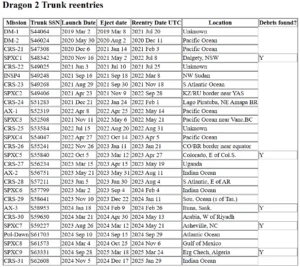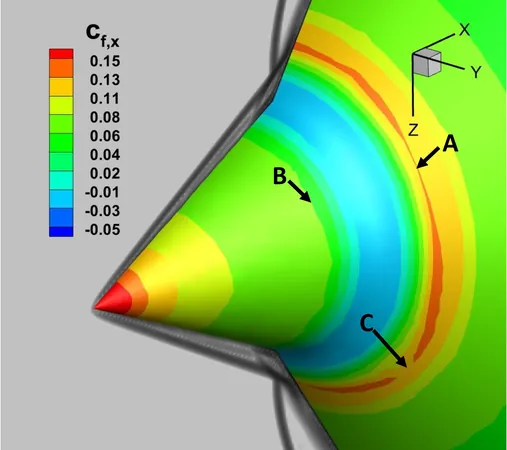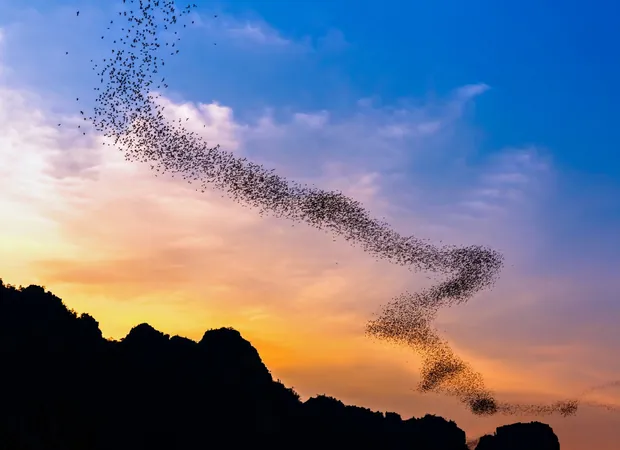
Major Developments in Space Policy: March 30 - April 5, 2025
2025-03-30
Author: Yu
Key Events This Week
The standout highlight is the launch of the private astronaut mission "Fram2," set to take off from Kennedy Space Center on March 31. This groundbreaking mission marks the first time humans will circle the Earth’s poles from space. It takes its name from the Fram, a historic Norwegian ship renowned for its explorations in the Arctic and Antarctic between 1893 and 1912.
The mission is financed by Chun Wang, a Chinese-born cryptocurrency billionaire who is now a Maltese citizen and holds the title of Mission Commander. The crew includes Jannicke Mikkelsen, a Norwegian cinematographer acting as Vehicle Commander, and Rabea Rogge, a German engineer and Arctic roboticist serving as Vehicle Pilot. Australian explorer Eric Philips will function as the mission specialist and medical officer.
Fram2 will be a short-duration voyage, lasting between 3.5 to 5.5 days, as it will not be stopping at the International Space Station. This means SpaceX must carefully monitor the launch and landing conditions, with multiple launch windows available. The mission aims to conduct various scientific experiments, including capturing spectacular images of auroras directly above the poles—a feat that has never been accomplished before from this perspective.
Additionally, this mission will be the first time a Crew Dragon spacecraft will splash down off the coast of California instead of Florida, a strategic move by SpaceX aimed at improving recovery operations.
Congressional Activity
Here in Washington, D.C., Congress is engaged in critical discussions regarding a reconciliation bill that may affect funding allocations for NASA. After returning from recess, lawmakers are racing against the clock to finalize negotiations before the upcoming spring break. While discussions often lean towards defense spending, there are growing concerns about the impact on non-defense sectors, including space exploration.
This week also features several hearings of interest. The House Science, Space, and Technology Committee is set to scrutinize NASA’s Commercial Lunar Payload Services (CLPS) initiative on April 1. Through this program, NASA collaborates with private companies to transport scientific payloads to the lunar surface, aiming to foster a commercial lunar economy. Although the initiative has faced challenges with several missions either tipping over upon landing or failing to reach the Moon, stakeholders argue that these experiences provide vital learning opportunities.
On April 2, Boeing President and CEO, Kelly Ortberg, will appear before the Senate Commerce Committee to discuss Boeing’s recovery efforts, particularly in regard to trust in their commercial aircraft manufacturing. However, the agenda may also touch upon the issues surrounding Boeing’s Starliner spacecraft.
In a separate context, the Senate Armed Services Committee will discuss the nomination of Lt. Gen. J. Daniel Caine (Ret.) as Chairman of the Joint Chiefs of Staff, where national security space interests may be a notable topic of conversation.
Space Studies Board's Focus
Outside of Congress, the Space Studies Board is holding its annual Space Science Week from March 31 to April 4. This event will include seminars, lectures, and discussions on various aspects of space science, featuring top experts and representatives from key institutions. Highlights include a public lecture on exploring the intersection of art and science with renowned physicist Kip Thorne and artist Lia Halloran.
This week is shaping up to be a crucial time for space policy and exploration, merging groundbreaking missions with important legislative discussions. Stay tuned for more updates as events unfold!




 Brasil (PT)
Brasil (PT)
 Canada (EN)
Canada (EN)
 Chile (ES)
Chile (ES)
 Česko (CS)
Česko (CS)
 대한민국 (KO)
대한민국 (KO)
 España (ES)
España (ES)
 France (FR)
France (FR)
 Hong Kong (EN)
Hong Kong (EN)
 Italia (IT)
Italia (IT)
 日本 (JA)
日本 (JA)
 Magyarország (HU)
Magyarország (HU)
 Norge (NO)
Norge (NO)
 Polska (PL)
Polska (PL)
 Schweiz (DE)
Schweiz (DE)
 Singapore (EN)
Singapore (EN)
 Sverige (SV)
Sverige (SV)
 Suomi (FI)
Suomi (FI)
 Türkiye (TR)
Türkiye (TR)
 الإمارات العربية المتحدة (AR)
الإمارات العربية المتحدة (AR)